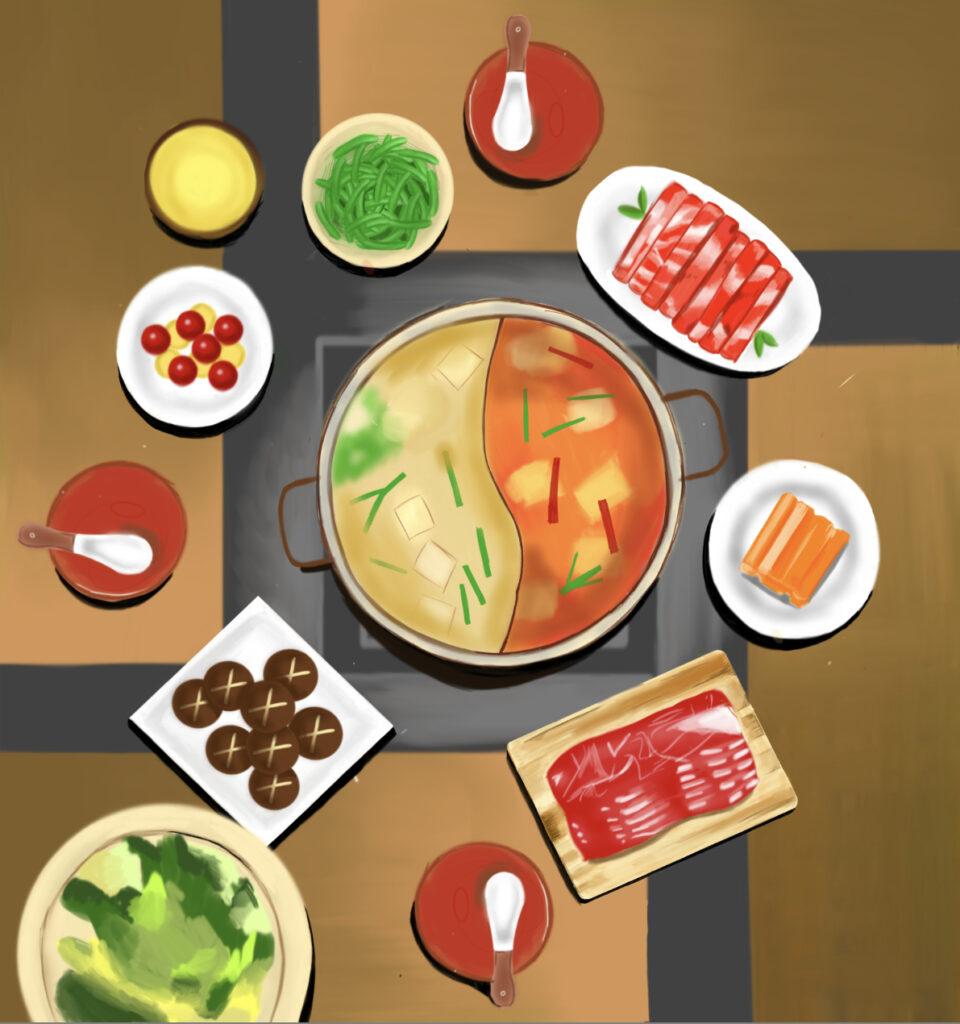
As today marks the start of the Lunar New Year, designated as the year of the tiger, celebrations are underway for many Harrisites. The Lunar New Year is an annual celebration observed in many cultures across the globe. Also known as the Spring Festival, the holiday is usually celebrated in late January or early February and indicates the start of the new year according to the lunar or lunisolar calendar.
For senior Fay Wong, her Chinese-Singaporean household celebrates the Lunar New Year with classic Singaporean traditions. “Everyone grabs chopsticks…around the table and mixes [a large dish of food].” The tradition includes the mixing of different ingredients to create “Lo Hay,” a colorful raw fish salad. “It’s an acquired taste,” she said.
Sophomore Patrick Lo also commemorates the start of the new Lunar year with a variety of cultural foods “like fish, shrimp, tangyuan (rice balls in soup), and nian gao (rice cake).”
“[Chinese] reunions during this time also [include] eating ‘auspicious’ foods, such as Chángshòu Miàn noodle, which represents the wish for health and longevity, [and] glutinous rice cake, which represents the wish to achieve higher in the new year,” sophomore Susan Yang said.
Many who celebrate Lunar New Year also follow various cultural superstitions and practices. “[W]e take a paper that says the Chinese character ‘fu’ [meaning luck] on it, and we flip it upside down before taping it to our front door,” said sophomore Chloe Mau. “This is because in Chinese, the words for both ‘upside down’ and ‘arrive’ are ‘dao,’ so by flipping the ‘fu’ upside down, we are basically saying that luck will arrive.”
Other Chinese traditions include elders giving out hong bao, or red envelopes filled with money, to their children or grandchildren, symbolizing good luck for the coming year. Freshman Angela Yang said, “The kids get to receive money, which is always fun.” Other prevalent superstitions during New Year’s preparation include house cleaning, which translates to “putting away…old things to welcome the new year,” Susan said.
However, this year’s annual celebration is notably different from that of previous years. With the current state of the COVID-19 pandemic, many have altered their festivities to minimize the risk of spreading the virus. “My family normally eats dinner, dresses in red, gives out red envelopes, and invites family,” said senior MaryKate Wee. “This year is a little different…We don’t invite as [many] people as we used to,” she added.
Over the past few years, the COVID-19 pandemic has hindered large gatherings common during familial celebrations such as Lunar New Year. This year, the rules are just as strict considering the rapid spread of the Omicron strain.
“Usually I have relatives from China who come over and celebrate with my family, but because of the pandemic, that’s not possible,” senior Lily Li said. “I think this year will be the same as last year…so I’ll just be with a few cousins and my family.”
Junior Nicole Chen shared a similar experience. “It’s a tradition to have a large family gathering where we would eat hot pot,” she said. Hot pot is a popular meal in East Asian countries, consisting of raw ingredients, like thinly sliced beef and vegetables, that are cooked in a big boiling broth. “However, the guest capacity is going to be way lower this year because of COVID,” Nicole said.
Despite the health restrictions, people around the world can still look forward to the Lunar New Year despite the distances between loved ones. Students shared how they celebrate the holiday in different and safer ways. “My parents and I usually call my family in Korea to wish them a happy Lunar New Year,” said sophomore Kaia Lain.
Sophomore Jennie Cheng said, “Lunar New Year is about spreading love and prosperity for the new year and [shedding] light on the unexpected.”
Additional Reporting by Tenzin Chemi and Christine Pak, Staff Writers
Artwork by Vivian Chen




























